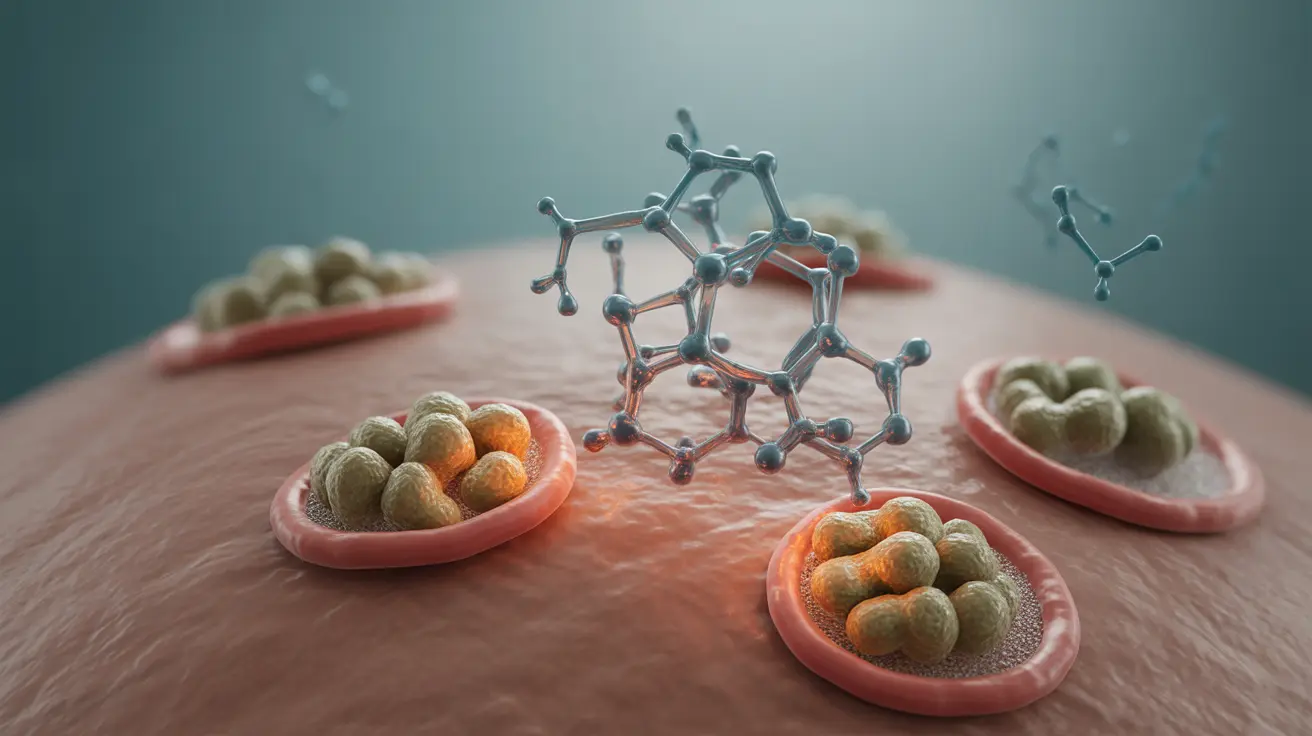Pyrithione zinc is a powerful antimicrobial compound widely used in skincare and hair care products, particularly for treating dandruff and various skin conditions. This versatile ingredient combines zinc with pyrithione to create an effective solution that tackles both the symptoms and underlying causes of scalp and skin issues.
Understanding how pyrithione zinc works and its various applications can help you make informed decisions about incorporating it into your personal care routine. Let's explore its benefits, proper usage, and important safety considerations.
How Pyrithione Zinc Works
Pyrithione zinc functions through multiple mechanisms to improve skin and scalp health. Its primary action is antimicrobial, helping to control the growth of fungi and bacteria that can cause various skin and scalp conditions. The compound also has anti-inflammatory properties that help reduce irritation and redness.
Antimicrobial Properties
The ingredient works by disrupting the cell membranes of microorganisms, particularly Malassezia, a fungus commonly associated with dandruff. This action helps restore the natural balance of the scalp's microbiome, leading to healthier skin conditions.
Benefits for Scalp Health
When it comes to scalp care, pyrithione zinc offers several significant advantages:
- Reduces dandruff flakes
- Alleviates scalp itching
- Controls excess oil production
- Helps maintain proper scalp pH
- Reduces inflammation
Impact on Hair Health
Beyond scalp benefits, pyrithione zinc can contribute to overall hair health by creating an optimal environment for hair growth. A healthy scalp typically leads to stronger, more resilient hair strands.
Skin Care Applications
While commonly known for scalp treatment, pyrithione zinc also offers benefits for various skin conditions:
- Seborrheic dermatitis
- Facial redness
- Mild acne
- General skin irritation
Proper Usage Guidelines
For optimal results, products containing pyrithione zinc should be used as directed on the label. Most anti-dandruff shampoos containing this ingredient are safe for regular use, typically 2-3 times per week or as recommended by a healthcare provider.
Safety Considerations
While pyrithione zinc is generally considered safe for most people, it's important to be aware of potential considerations:
- Start with less frequent use to test skin sensitivity
- Avoid contact with eyes
- Discontinue use if irritation occurs
- Consider consulting a healthcare provider for severe skin conditions
- Pay attention to product concentration levels
Frequently Asked Questions
- How does pyrithione zinc help with dandruff and itchy scalp, and how often should I use it?
Pyrithione zinc helps control dandruff by targeting the Malassezia fungus and reducing inflammation. For most people, using products containing pyrithione zinc 2-3 times per week is effective. Start with twice-weekly use and adjust based on your scalp's response.
- What are the possible side effects or risks of using pyrithione zinc shampoo or skin products?
Common side effects may include mild skin irritation, dryness, or redness. More serious reactions are rare but can include severe irritation or allergic reactions. If you experience any adverse effects, discontinue use and consult a healthcare provider.
- Can pyrithione zinc treat skin conditions other than dandruff, such as eczema, psoriasis, or acne?
Yes, pyrithione zinc can help manage several skin conditions due to its anti-inflammatory and antimicrobial properties. It may help with seborrheic dermatitis, mild acne, and some forms of eczema, though severe cases should be treated under medical supervision.
- Is pyrithione zinc safe for daily use, or should I take any special precautions for sensitive skin or scalp?
While pyrithione zinc is generally safe for regular use, those with sensitive skin should start with less frequent applications and monitor their skin's response. Daily use is possible but not always necessary; follow product instructions or your healthcare provider's recommendations.
- Does pyrithione zinc help with hair growth, and how does it improve overall scalp health?
Pyrithione zinc primarily supports hair growth indirectly by creating a healthy scalp environment. It reduces inflammation, controls microorganisms, and maintains proper scalp conditions, which can promote better hair growth and overall scalp health.




